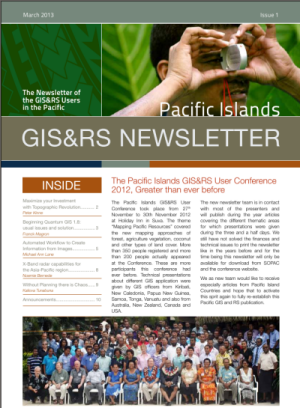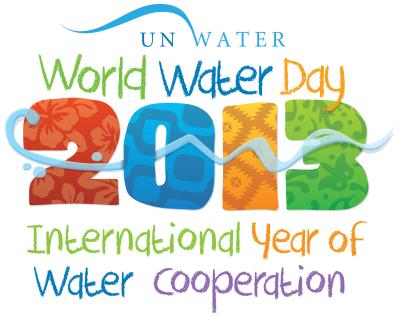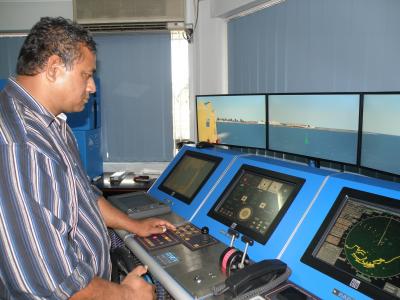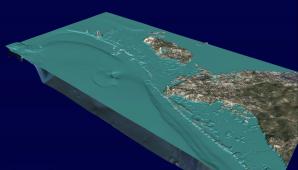The Prospect - Issue 1: May 2013
Monday, 10 June 2013 17:48
administrator

Welcome to the first newsletter from the SPC-EU Pacific Deep Sea.
The SPC-EU Pacific Deep Sea Minerals Project is helping Pacific Island countries to improve the governance and management their deep-sea minerals resources. The Project is helping the countries to improve legal frameworks, increase technical capacity and to develop effective monitoring systems.
The Pacific Deep Sea Minerals Project is funded by the European Union and managed by SOPAC, the Applied Geoscience & Technology Division of the Secretariat of the Pacific Community, on behalf of 15 Pacific Island Countries: the Cook Islands, Federated States of Micronesia, Fiji, Kiribati, Marshall Islands, Nauru, Niue, Palau, Papua New Guinea, Samoa, Solomon Islands, Timor Leste, Tonga, Tuvalu and Vanuatu.
The 4-year (2011-2014) SPC-EU Pacific Deep Sea Minerals Project is the first major initiative designed to regulate this new activity in a coordinated way within the Pacific Region. The national €4.4 million governments EU-funded develop project the is designed legal, fiscal to help and environment management frameworks needed to ensure that any exploitation of deep sea minerals will directly support national economic development while also minimizing any negative impacts on the environment and local communities.
In This Issue:
- Tonga Workshop Builds Vital Contract Negotiation Skills
- SPC Director, Dr Jimmie Rodgers talks Deep Sea Minerals
- Tonga Workshop Highlights Need for Greater Integration between Government & Civil Society Organisations
- Staff Profile: Akuila Tawake
- Project Highlights
- Upcoming Events
Download Full Issue
Last Updated on Wednesday, 19 June 2013 15:15
SOPAC Awarded 2013 DigitalGlobe Asia Pacific Innovation Trophy
Thursday, 23 May 2013 08:38
administrator

The Secretariat of the Pacific Community (SPC) accepted the 2013 DigitalGlobe (Asia Pacific) APAC Innovation Award. This award is recognition of the systems and approaches SPC has taken in the adoption and introduction of DigitalGlobe imagery.
SPC has taken the raw imagery and applied the world class enhancement techniques that allow for users in Pacific Island Countries to utilize the images for climate change, food security, forestry and land management.
The image enhancement takes the special conditions of the Pacific environment into consideration. Products now include correction for humidity, haze and other atmospheric conditions. This improves the confidence in the information derived from the image data.
The award (see photo) was presented to Deputy Director General Fekitamoeloa K. ‘Utoikamanu in the Nabua SPC office in Suva, Fiji. “This has been a real stepping stone to improving the service to the Pacific Island Countries. Already we are seeing economic and social benefits and I am looking forward to these benefits being realised throughout the Pacific and a closer partnership with DigitalGlobe”, said DDG Fekitamoeloa.
Caption (L-R): Wolf Forstreuter, Senior GIS Specialist, SPC Deputy Director General Fekitamoeloa K. ‘Utoikamanu, Peter Kinne (DigitalGlobe)
Last Updated on Tuesday, 02 July 2013 14:24
Pacific Islands GIS/RS Newsletter, March 2013
Thursday, 04 April 2013 12:20
administrator

Inside:
Maximize your Investment with Topographic Revolution
Peter Kinne
Beginning Quantum GIS 1.8: usual issues and solution
Franck Magron
Automated Workflow to Create Information from Images
Michael Ann Lane
X-Band radar capabilities for the Asia-Pacific region
Noemie Bernede
Without Planning there is Chaos
Kaliova Tunabuna
Announcements
Read Full Issue
Last Updated on Thursday, 04 April 2013 12:25
World Water Day 2013 - Building water partnerships for the Pacific Island Countries and Territories
Thursday, 21 March 2013 14:09
administrator

Suva, 22 March 2013: The Pacific joins the rest of the world today in celebrating World Water Day 2013 in a spirit of cooperation and partnership. This occasion provides a moment to reflect on our precious water resources and on our role in their management and protection.
World Water Day is celebrated on 22 March each year to help focus the world’s attention on water and sanitation. This year is also the International Year of Water Cooperation –the global theme for World Water Day this year. This theme has enormous significance for the Pacific, a region where water management is a critical development issue with profound implications for economic growth, human rights, public health and the environment. To put the scale of the issue in context, it has been estimated by UNICEF and WHO that little more than half the population of our region has access to improved drinking water and sanitation.
The Pacific theme for World Water Day is Building Water Partnerships for the Pacific Island Countries and Territories. Water issues and concerns, such as the inequitable distribution and unsustainable use of water resources, cross many boundaries, communities and levels of governance. Furthermore, resource management in the Pacific also needs to account for traditional and cultural approaches often tied closely to land and nearshore coastal area management. These approaches also extend to the management of water and sanitation. Navigating through all this can be challenging and achieving any lasting success requires effective cooperation between multiple actors across many levels.
Dr Jimmie Rodgers, Director-General of the Secretariat of the Pacific Community (SPC), said that cooperation is crucial not only to ensure the sustainable and equitable distribution of water but also to foster and maintain peaceful relations within and among communities. He further reinforced the need to strengthen water partnerships already in place across the region to help secure safe water and sanitation for all.
Last Updated on Thursday, 21 March 2013 15:54
Read more...
|
SPC divisions collaborate to develop local pilot training tool
Tuesday, 04 June 2013 14:40
administrator

Local pilots play an important role in the safe passage of container ships and other large vessels into and out of Pacific ports. Foreign shipmasters rely on pilots for their local knowledge of depths, currents, locations of wrecks, reefs, navigation aids, and other potential obstacles. And now, updated oceanographic studies of Suva Harbour’s sea floor and currents are being used to localise and improve a computer-simulated training for ships’ pilots in the Pacific region.
A recent collaboration between two divisions – the Economic Development Division (EDD) and the Applied Geoscience and Technology (SOPAC) Division – of the Secretariat of the Pacific Community (SPC) has produced the first simulation of a Pacific Island port.
According to SPC Shipping Advisor John Rounds, the computerised simulator is a critical training tool because it can test a pilot’s ship-handling competence under a variety of challenging wind and sea conditions without the expenditure and risk of practising on actual vessels. ‘It’s like a blown up computer game,’ he says.
Last Updated on Tuesday, 02 July 2013 14:24
Read more...
Work to Protect Kiribati’s Vulnerable Coastline Uncovers Potentially Explosive Secrets from Tarawa Lagoon
Tuesday, 16 April 2013 13:02
administrator

16 April 2013 - A survey of the South Tarawa lagoon has revealed some potentially explosive secrets from its past as one of the major battlegrounds of WWII. The survey was designed to identify battle debris that still litters the floor of the lagoon seventy years after the infamous Battle of Tarawa in 1943.
Funded by the New Zealand Regional Ocean Sciences Grant, the survey was undertaken as part of the Government’s work to reduce the atoll’s damaging reliance on beach mining by identifying potential sources of construction aggregate on the floor of the Tarawa Lagoon. The widespread practice of beach mining has been weakening the atoll’s vulnerable shoreline along with Government efforts to protect communities from the worsening impacts of climate change and rising sea levels.
The Government turned to SOPAC, the region’s Applied Geoscience & Technology Division of the Secretariat of the Pacific Community, for guidance on safe methods to dredge an alternative source of sand and gravel from Tarawa’s southern lagoon. Before dredging can begin, as part of the European-Union funded Environmentally Safe Aggregate for Tarawa (ESAT) project, SOPAC first needed to identify any potential problems that might be posed by any unidentified and unexploded ordnance.
During WWII, the islands of Kiribati saw some of the Pacific’s bloodiest encounters. From 20-24 November 1943, an invasion flotilla of 18,000 US Naval and Marine Corps troops attacked the fortified Japanese garrison on Betio in Southern Tarawa. The 4,600 Japanese defenders fought almost to the last man, and more than 1,000 Americans lost their lives.
SOPAC’s Survey Leader, Geophysicist Robert Smith, is still analysing the data but he has already identified two previously unknown vessel wrecks and unearthed numerous artillery remnants. Of the vessels, Smith says, “These may be sunken Higgins boats, which would have carried 20-30 marines each.” The US government has already expressed a keen interest in Smith’s findings.
Last Updated on Thursday, 23 May 2013 08:52
Read more...
Interest in deep sea mining grows in the Pacific
Tuesday, 02 April 2013 09:30
administrator
 Pacific countries are being urged to protect their deep sea mineral resources as commercial interest rapidly grows in the region. Pacific countries are being urged to protect their deep sea mineral resources as commercial interest rapidly grows in the region.
One company is planning to undertake the world's first deep sea mining project in Papua New Guinea and there's growing interest elsewhere.
Jonathan Lowe from Nautilus Minerals told ONE News their initial focus is on copper, gold, zinc and silver.
However extracting it from 1-2 kilometres below sea level, has always been the issue - until now.
Commercial groups are currently starting to sign up exploration licences around the region and Pacific governments are being urged to protect themselves and negotiate the best deal with interested companies
"They are making heavy investments. They are going to push very hard to get as much of the proceeds as possible," said Dr Jimmie Rodgers, Director of General South Pacific Community.
"Governments need to be very clear on what it is they want to get out of this. They have to have definite milestones that are not negotiable."
Last Updated on Wednesday, 03 April 2013 12:32
Read more...
Message from the Director-General on World Water Day 2013
Thursday, 21 March 2013 14:15
administrator

Dear colleagues,
Today marks World Water Day, a day of celebration and reflection on a precious natural resource and on our role in its management and protection.
This year is also the International Year of Water Cooperation – a theme of enormous significance to the Pacific. Across the region, water management is a critical development issue with profound implications for economic growth, human rights, public health and the environment. To put the scale of the issue in context, it has been estimated by UNICEF and WHO that little more than half the population of our region has access to improved drinking water and sanitation.
There are clearly major challenges ahead, but today, SPC joins its member countries and territories in celebrating the real progress being achieved through building water partnerships.
In Fiji, the collaborative work of the Nadi Basin Catchment Committee is enabling practical solutions to reduce the human impacts of flooding. This pioneering work demonstrates what can be achieved when communities, agencies and the private sector come together to face a problem that is not solvable through the efforts of individuals.
Innovative technologies continue to be developed and shared across the region. Tuvalu has been particularly active in sharing the knowledge behind its tremendous success in using composting toilets to reduce both use of fresh water and pollution of groundwater lenses and coastal lagoons.
In Palau, Federated States of Micronesia and Marshall Islands, government sectors are joining forces at a subregional level to raise awareness of water and sanitation issues and find solutions to common problems. Our Melanesian members too have begun collaboration to better respond to the development issue of access to safe drinking water and sanitation. With SPC’s support, the Melanesian Spearhead Group Secretariat will shortly appoint a Water and Sanitation Access Facilitator to help develop policy and practical solutions in MSG countries.
Last Updated on Friday, 22 March 2013 07:21
Read more...
|










 Pacific countries are being urged to protect their deep sea mineral resources as commercial interest rapidly grows in the region.
Pacific countries are being urged to protect their deep sea mineral resources as commercial interest rapidly grows in the region.









